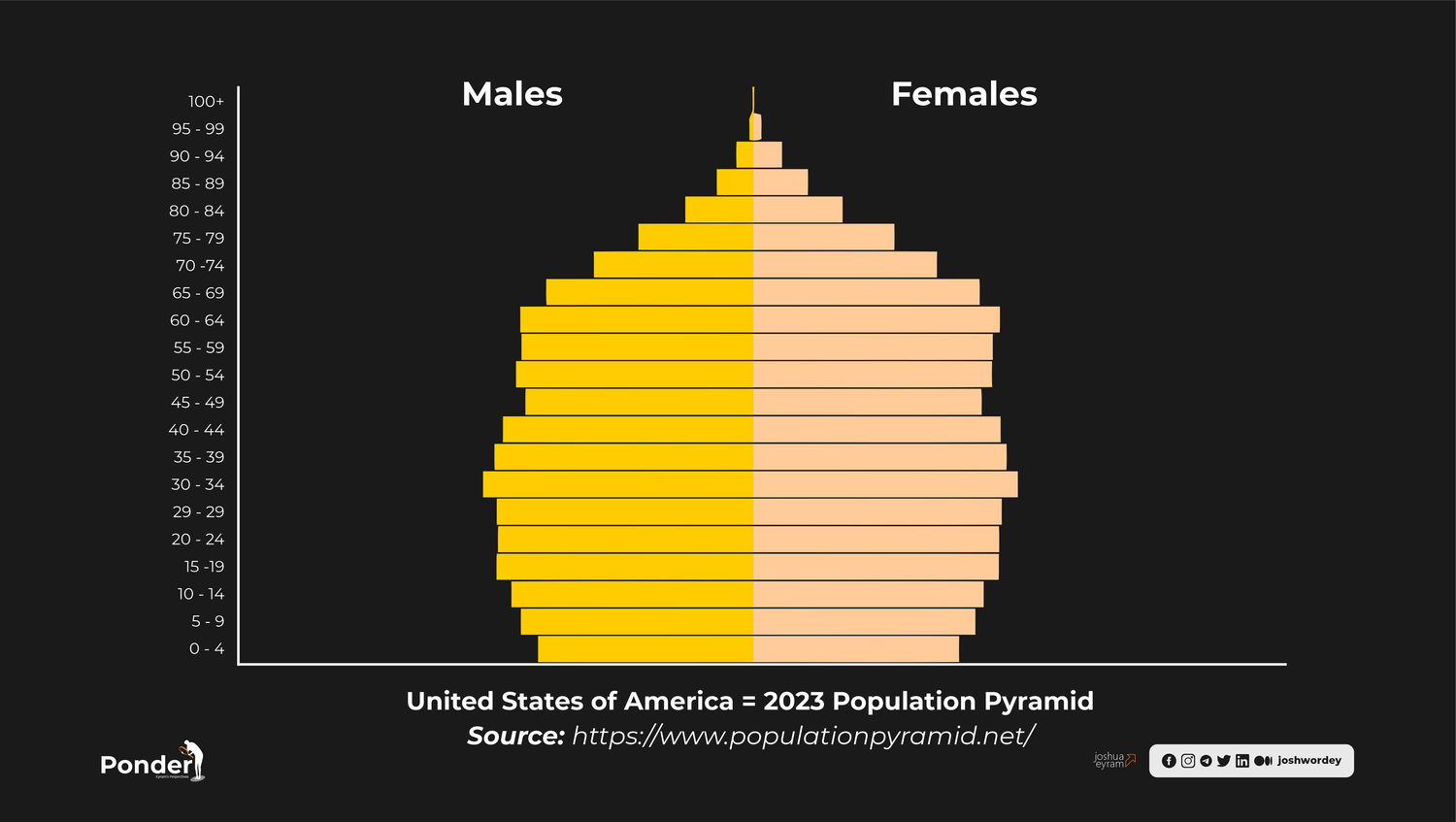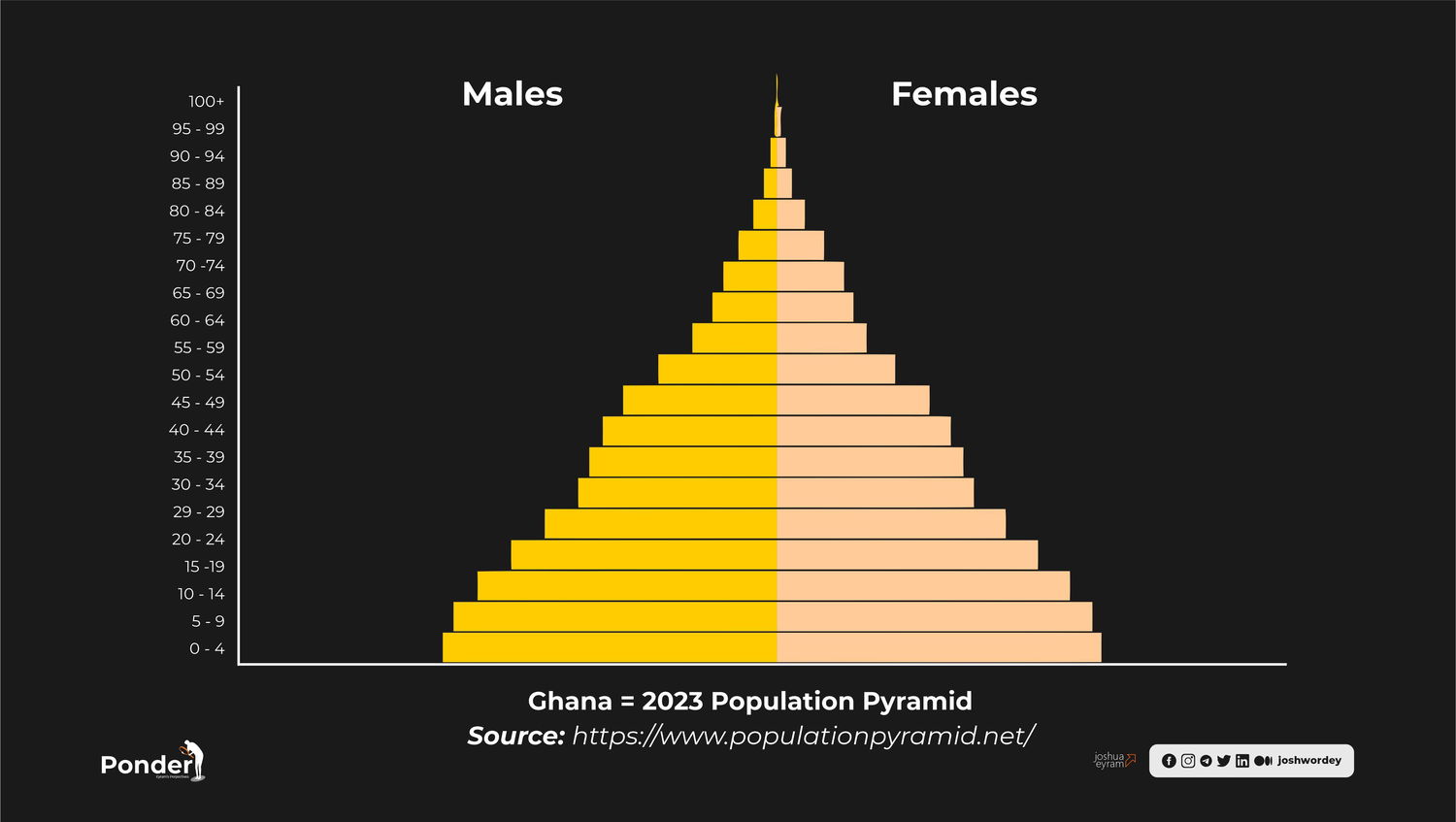In my recent post "To Japa or Not to Japa: the Ghanaian’s Dilemma", I made a rallying call to action to fellow Ghanaians on why we need to stay and protect our birthright, irrespective of the lucrative temptation to Japa. But as I was duly prompted, a rather different call needs to be made (especially) to the people deserving of it.
To drive home my point, let's start with the concept of Brain Drain.
Brain drain in the simplest of terms is the emigration of skilled individuals (usually) from developing countries to advanced economies. This, for some time, has been a concern for nations striving for economic progress.
Because of brain drain, developed countries get to benefit the from the influx of the most talented professionals developing countries can boast of, and the repercussions on developing nations can be severe.
But if developed/advanced economies already have a high number of skilled professionals, why do they need this influx in the first place? I love numbers, thus a good place to start answering this will be with demographics. And where best to start than with population pyramids?
Population pyramids are graphical representations that display the distribution of various age groups and genders within a population. They are typically used by demographers and policymakers to understand population dynamics and plan for future social and economic needs.
But they also illustrate something far more important in this context - workforce strain. You see, the concept of society is built on the idea that the younger would grow to take care of the elderly. And so the ideal situation is to have more younger people in society. The more young people a society has, they less work they have to do to take care of themselves and the elderly (who have already paid their dues by taking care of the elderly in their time).
Yet, with the advent of education and better healthcare, almost all developed and advanced economies are facing the issue of declining birth rates while struggling with the prospect of an ageing population. To further complicate matters, the younger generation of these countries are not having enough children to sustain the cycle of caring for the elderly and most importantly keep the economy running. This imbalance results in strains on the workforce and increased pressure on public services.
The figure below is the population pyramid of the United States in 2023 and it illustrates this concept more succinctly. The US, in 2023, has a smaller working-age population that has to support and provide for a larger elderly population, leading to labour shortages and increased dependency ratios (the ratio of the non-working population to the working-age population).

Developing countries on the other hand are experiencing a boom in their populations. Developing countries tend to have poor social and retirement nets so having children is seen as cheap labour but most importantly, as a potential retirement plan. Doing the math, it is easy to realise how having a lot of children places the probabilities squarely in their favour. Ghana's population pyramid below illustrates this as well.

Meanwhile, in advanced economies, several factors come against having more children. Safety nets for the future are above average and raising children requires significant investments of time, effort, and financial resources. Put these together and you have a worrying decrease in population.
That, my dear reader, is where labour from developing countries comes in. Developed countries opt to close this gap by attracting young workers who stimulate their economies and contribute to their workforce. Where do these workers come from? Did you ask? Developing countries!
These countries bring in the brightest students from developing countries on flexible visas and scholarships, allow them to work part-time jobs, and hand them citizenship offers once they're done with their education. More often than not too, they're allowed to bring along their family members. That way, they are confident of the fact that they are bringing in people who will have a net positive impact on their economies.
Developing countries always remain on the losing end of this equation yet we are not fighting back! We're gladly helping other countries strengthen their industries and secure their positions as global economic leaders. We even have officials of some countries boast about how many youths have gained some of these scholarship opportunities through them.
The story of Jacob and Esau fits perfectly in this context too. We, as Esaus, are glad and super excited to devalue and lose our brightest and best to advanced economies in exchange for what? I don't know. In “Ghana: The Paradox”, I explored how unattractive it is to be a Ghanaian youth today, and rightly so.
Advanced economies have every reason to attract the best, and so they do. We, the legends, who have more reason to retain the best, are not. It is beginning to seem like an unwise decision for the best to stay. You do not plant cocoa at the beachside, water it with salty vegetable oil and expect it to grow.
We cannot keep on this path. We cannot keep relying on "passion" to develop and improve outcomes for our people. We have to fight back. And so while we're making our youth deliberate on on whether or not to leave their motherlands, we have to stack the odds in our favour. We cannot keep "attracting" foreign investment when we can't even maintain local talent.
The best, yet most difficult, approach for us will be to make the offer from advanced economies less attractive. This will mean a tight focus on improving living conditions within the country and addressing the factors that push our citizens to seek opportunities abroad in the first place. Give a skilled man an opportunity and the tools needed, and he's sure to bring you results.
Successful economies like South Korea, Japan, Singapore and Taiwan serve as examples of countries that transitioned from developing to advanced economies by implementing strong government programs. These initiatives aimed at building world-leading technical industries enticed skilled professionals to contribute their expertise. They also created an environment where brain drain was minimized and local talent flourished.
Any country can attract foreign talent, but we're the only ones capable of giving them a reason not to go. 🚶🏾♂️
